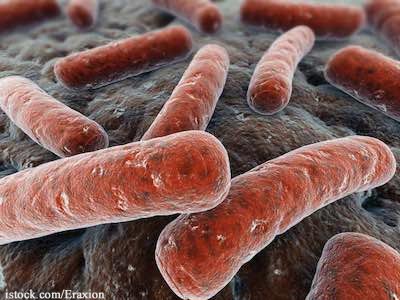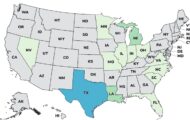When people hear “E. coli”, tainted meat is usually the first thing that springs to mind. But E. coli is an equal opportunity pathogen and shows up in vegetables more often than we tend to think.
 Escherichia coli (E. coli) bacteria live in the intestines of people and animals where they play an important part in digestion. Most types are harmless, but some are pathogenic and can cause serious, sometimes fatal illness if they make their way into our food. E.coli can show up in any kind of food: meat, raw milk, other unpasteurized drinks, fruits and vegetables.
Escherichia coli (E. coli) bacteria live in the intestines of people and animals where they play an important part in digestion. Most types are harmless, but some are pathogenic and can cause serious, sometimes fatal illness if they make their way into our food. E.coli can show up in any kind of food: meat, raw milk, other unpasteurized drinks, fruits and vegetables.
Vegetables, particularly fresh produce, have been the source of several recent E. coli outbreaks. In Canada, an ongoing E. coli outbreak linked to shredded lettuce served at fast food restaurants has sickened at least 30 people. A December E. coli outbreak at a Longhorn Steakhouse in Cincinnati sickened five people. And two of the largest multi-state foodborne illness outbreaks of 2012 were linked to produce.
An E. coli outbreak linked to spinach and spring mix sold at Wegmans and other grocery sickened 33 people in five states. The tainted salad greens identified as the source of the outbreak, which ended in December, were produced by State Garden of Chelsea, Mass. At least two of the 33 people sickened were hospitalized with hemolytic uremic syndrome (HUS) a life threatening condition that develops after some E. coli infections that leads to kidney failure. And last year at this time, clover sprouts contaminated with E. coli served at a fast-food sandwich chain were causing illnesses in 11 states.
According to the Centers for Disease Control and Prevention , the best ways to reduce your risk of E. coli infection are to: wash your hands after using the bathroom, changing diapers, having contact with animals and before preparing or eating food. Cook meats thoroughly, ground beef and mechanically tenderized meat should be cooked to a temperature of at least 160°F/70˚C. Avoid unpasteurized drinks. Avoid swallowing water while swimming. Prevent cross contamination by using separate cutting surfaces and tools and serving trays for raw foods.




